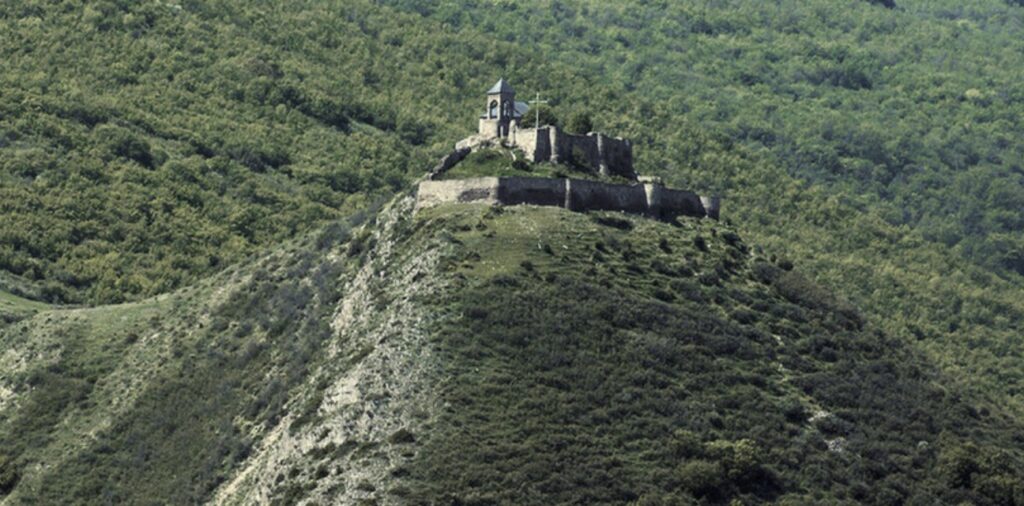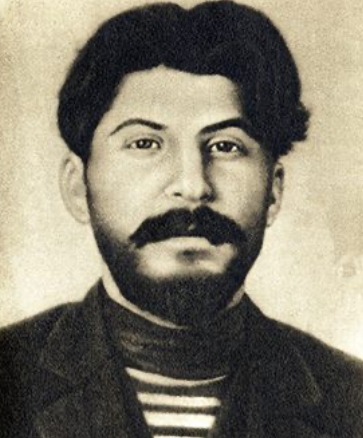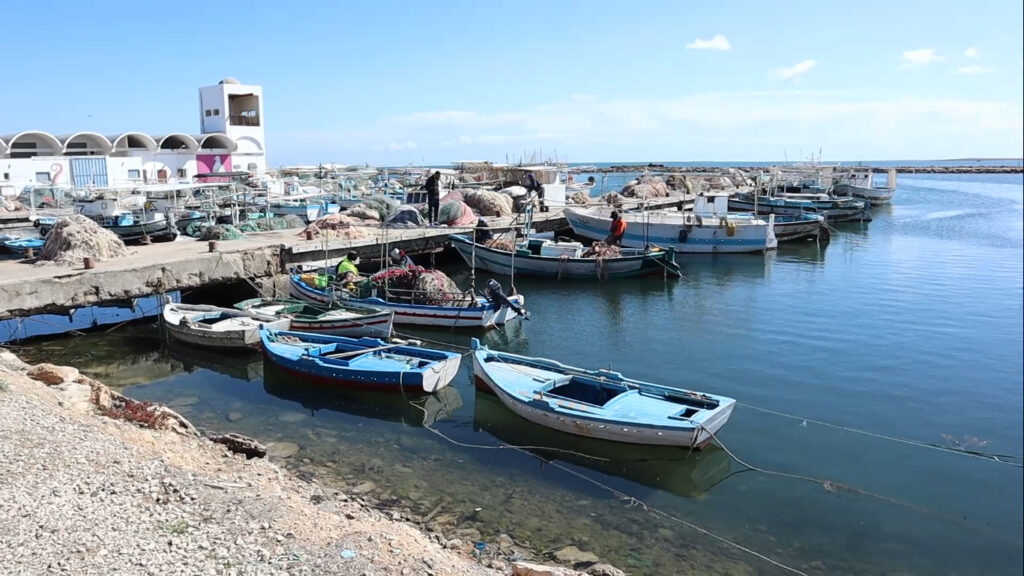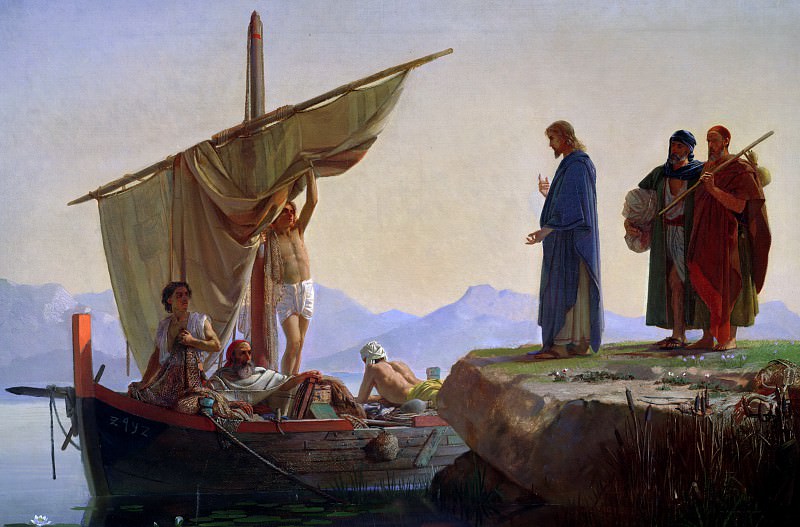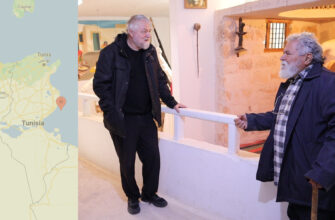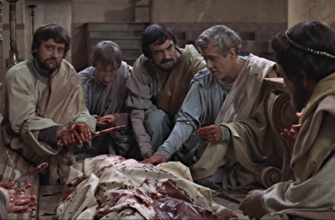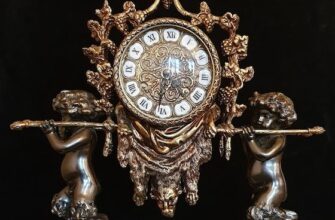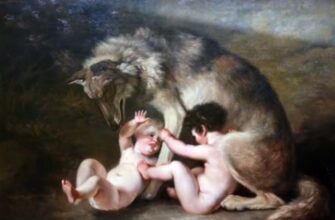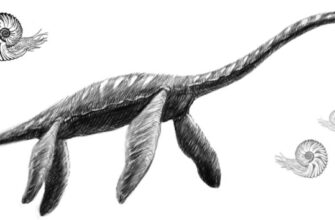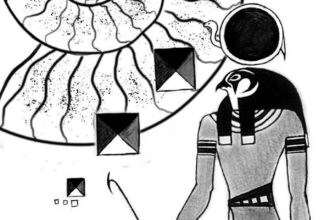Among the musings about the fabric of life that we shall present below, there is an intriguing corollary. We know from the example of Comrade Stalin’s exceptional achievements and great luck that from his early childhood he started preparing for his education in prison, specifically, as a prisoner to the part of the prison where the temple order is implemented. Even as a free young boy, Soso would gaze up at the ancient Temple of the Virgin of the Moon (Gorijwari), which stood on a mountain within line of sight of his home. He would look up from down below, judging by the outcome, with great respect.
As a result of his respect for wisdom in general, Soso likely, prompted by his father and perhaps by someone performing ancient rituals near the temple, began studying the structure of the sacred portion of the prisons.
This sacred section is arranged by the prisoners themselves, albeit not all of them but only some. The jailers endeavored to prevent it as much as possible, sometimes even killing the inmates. Thus, it is astonishing that Soso began studying the prisons’ structure long before he ever set foot in one, unsurprisingly, being falsely accused.
The boy learned informal prison rules, ascertained not to swear badly and delved into the mysterious order, which is referred to as “black order.” “Black” is one of the names of the lion, which is a sacred symbol. In Russian-speaking prisons, another Arabic name for a lion, hamza, is also employed. In general, sacred names for the lion, those that are not commonly used, are steeped in significant knowledge. In the Arabic language alone, there are up to five hundred names for the lion, though not all of them are sacred. Indeed, the boy was preparing himself to be lucky and wise.
However, one must still earn their way to prison as an innocent – through their nobility and spiritual development. These are qualities that the System detests intensely. To be imprisoned on the sly is not the right thing to do, if not blasphemous. It is not for a man to tell Providence when and how to turn the tides of fate. But some of us are so eager to quickly cross paths with those who bear the theme of good luck. What are those seeking left to do outside of prison? Perhaps try to join a fishing crew, but not just any crew, of course. Which one?
When studying Stalin’s biography through texts written by various authors, a common misinterpretation arises regarding why Comrade Stalin, after leaving his hometown in the foothills of Gori, chose to live on the shores of the Black Sea, and later on the shores of the Caspian Sea. Why the sea? The misinterpretation found in all treatises about Stalin is that he wanted to fight against bourgeois domination. However, one can fight bourgeois domination anywhere, even far away from the sea, in the depths of the continent, in a landscape as familiar as Gori. So, why did Stalin specifically choose to live on the shores of the sea? Furthermore, he became a bosun and embarked on a voyage, sailing past coasts and islands with some clear goal in mind. But where was he sailing to and what was his goal? It’s evident that it wasn’t just for making money.
All of young Stalin’s actions related to the sea had a purpose; they were part of his preparation for imprisonment despite his innocence and lack of violation of any laws deemed relevant from an eternal perspective.
It is not uncommon for highly evolved individuals to choose purely fishing villages. In fact, the biographies of many philosophically strong Russian writers from the past mention that they lived for extended periods in small fishing villages on the seashore. Of course, not all of them lived in the same village, as there were numerous geographical options to choose from.
Noticing this common detail in the biographies of strong writers, I initially thought that they ventured out into the wilderness for economic reasons. Fish and lodging are inexpensive, after all. However, some writers choose to go to such places even when they were already financially stable and could live anywhere they pleased. There were times when writers made a lot of money; although those times have passed, they did exist. So, why did they need to go to the middle of nowhere, and why did they prefer a fishing village on the seashore? The peasant hinterland, where Lenin was exiled, for example, did not appeal to them.
After visiting the Kerkennah Islands, I now understand why. The perfect place on the way of a wanderer is a sea island where nothing can be done except fishing.
However, it is difficult to know where in the world such “salt” islands exist, if at all. Therefore, one must settle for approximations, such as a seaside town with a fishing port. Even if there is no port, there is always a place where fishermen gather. Or buy a schooner and moor it in a ship graveyard while working on the next book, like the French detective novelist Georges Simenon did. There are only fishermen in the ship graveyard. But in any case, non-fishing villages are not suitable. The influence of unmotivated philistines is too strong, destroying the fishing subculture.
Comrade Stalin’s decision to become a bosun can now also be explained by his search for such an ideal fishing island for training in preparation for prison. He wanted to sail until the ship’s route passed close to a “salt” island, perfect in a special way. There he would disembark. The whaler from Batumi in Georgia, where Stalin was born, keeping his course through the Strait of Gibraltar into the Atlantic Ocean, was bound to pass relatively close to Kerkennah. There is a narrowness, a strait, in that part of the Mediterranean Sea.
I cannot say with certainty how unique Kerkennah Islands are in terms of its combination of characteristics: just fishing and a relatively nearby market like Sfax. If it is unique, then that alone is reason enough for a young Stalin to have chosen to visit. And even if Kerkennah are not particularly unique among similar islands, there may still be additional reasons for Stalin to have chosen it specifically. It may be a very important reason.
Leaving aside the theme of the supposed place of power here, it is no coincidence that Heracles stayed on these islands, and this is Stalin’s additional motivation to choose Kerkennah. After all, Stalin was following in the footsteps of Hercules. The country of Tunisia is where Hercules performed his Tenth Labor. Additionally, Julius Caesar exiled Lepidus, the future High Priest who participated in the rebellion, to Tunisia with honors. Lepidus was not fully initiated and did not understand Caesar, so he rebelled. The fact that Julius Caesar exiled Lepidus to Tunisia is not accidental. He exiled Lepidus to Tunisia because it was the easiest place to master the Labor of Hercules on which Lepidus was stuck. But in what part of Tunisia (it used to be called the province of Africa) did Lepidus choose to be? Clearly, the place must be unique. Is it not the stay of Hercules, the Teacher, that makes this place unique?
There are clear indications that Heracles visited Kerkennah, but one wonders why they have not been noticed. But there is a separate story being written about these signs. Was it not Heracles’ stay on Kerkennah that drew Hannibal to the area? Might not the same fact, albeit for an opposite reason, have also drawn a young Stalin here when he was serving as a bosun?
An indirect argument can be made regarding the potential characteristics of the fisherman clan. The first disciple called by Christ was a fisherman, and other fishermen were subsequently called as disciples.
They dropped everything and followed Christ. Fishing was the most common occupation among Christ’s disciples. The percentage of fishermen who left their trade to become disciples was significantly higher than the population average. Who knows, perhaps the other disciples also began their careers as fishermen? There are always such people, and this is a topic for serious consideration.
One might argue that the calling took place on Lake Genisaret, and that fishermen from small bodies of water and rivers are considered losers on the Kerkennah, because there are no deadly dangers in freshwater compared to the sea. Facing greater difficulties can lead to greater personal development, and therefore, freshwater fishing is considered inferior. Why, then, didn’t Christ call the sea fishermen instead?
It should be noted that Lake Genisaret is only 50 kilometers from the Mediterranean Sea, making it easy to imagine that the fishermen who were called on Lake Genisaret also fished on the sea periodically.
Moreover, fishing is seasonal, so there are times when there is no catch, and during storms, when sea fishermen do not go to sea, it is safer to fish in fresh water. Therefore, those called by Christ on Lake Genisaret could be both sea and freshwater fishermen, and each water source has its own challenges. Thus, those who were called and, more importantly, who responded to the call, had even more types of difficulties to overcome than purely marine fishermen. This was legitimate and beautiful.
As a matter of fact, Stalin followed the same course as these fishermen.
After his adventures on various seas, all five of his exiles were near major northern rivers in Russia. The rivers in the North of Russia are all full-flowing. It’s no surprise that Stalin fished on all of them, often with company. During his last exile on the Yenisei River, the largest river in Eurasia, he spent nearly four years fishing with Anna Alexeyevna Shadrina, a shamaness from the Keto people. This people found some motive to move from Tibet to Russia under harsh Arctic conditions. Stalin and the shamaness mainly fished together at the mouth of the Kureika River where it flows into the Yenisei.
Of course, we must take into account that the spiritual state of the fishing community may vary over time. Betrayal could have crept into the ranks of the fishermen. People might grow in the power of thought, but sometimes they stop growing and become stagnant. It is impossible to stand still, and eventually, degradation sets in. That is what betrayal is. Therefore, there may be different periods in the history of Kerkennah: some may be full of light, some may be average, and some may be dark. It takes luck to visit Kerkennah at the right time. Knowing about this pattern, one should not relax, lest they stumble.
At some point, another island or even a different location may become more preferable than even the most ideal one. For instance, Hercules, who was born on a continent near the sea, obviously spent his entire childhood fishing there. Similarly, Perseus was born on a small island. According to the prophecy, Hercules will be the guiding star for all Perseids, who are believed to be related by blood. However, could it be that they are related in spirit instead?
Now, let us take a closer look at the islands of Kerkennah and the fishermen in general, assuming that there is no place of power in this archipelago.
THEN MACHINE TRANSLATION COMES NEXT. AND MACHINE TRANSLATION IS ALWAYS INACCURATE, UP TO THE CONTRARY. YOU CAN MAKE THE TRANSLATION YOURSELF OR PAY FOR THE WORK OF A TRANSLATOR. YOU CAN MAKE SURE THAT THE FISHERMAN IN YOU IS ALIVE, SAY, THROUGH SOME OF YOUR ANCESTORS, BECAUSE YOU CARE ABOUT FISHERMEN. AS A CONSEQUENCE, YOU WILL SOMEHOW PARTICIPATE IN BRINGING THIS INFORMATION TO THE FISHERMEN. OF THIS MESSAGE AND ALL OF IT. YOU CAN DO IT THROUGH US.
So, supposedly there is no place of power on the inhabited islands of Kerkennah or the uninhabited ones. There is none. None. Then what draws special events to Kerkennah? And the crowds of tourists, on the contrary, drives away?
What distinguishes the archipelago of Kerkennah is the peculiarity of its people. A peculiarity forced by the archipelago itself. As there is a lot of salt on Kerkennah and, more importantly, moisture is limited, there is no possibility to do anything economically here on land. The only thing to do is to make bricks from clay. At one time they tried to extract salt, even laid a railroad, there are old photos of it, but it was abandoned. It remains only to fish. Here is the remaining population, that is, those few who have not left to earn money in the industrial areas, and catch. An island of fishermen. Fortunately there is a considerable market: the big city of Sfax on the continent is only 18 kilometers away by sea.
And fishing is a special occupation. The priestly potential of the fishermen has a peculiar imprint.
Here is an exercise in observation. The population, that is, assembly line workers, housewives, servants, sales clerks and saleswomen, letter carriers, scientists, and so on, carefully avoid the subject of luck. At the beginning of this topic, we can do without theoretical deductions: we simply have to notice the inferiority of this two-legged biological species.
But there are some occupations, and those involved in them are few in number, which are simply forced to notice the topic of luck or fate. Otherwise, they get into trouble, which they do not like. For example, they can be caught and imprisoned for an unlucky attempt to steal in the wrong place. Or for something like that.
What surprises a newcomer to prison is the inmates’ ability to take any interest in the subject of luck, good fortune. Or luck. Both luck and fortune carry some sort of winnings. But luck is of dark origin, luck is of light. The inhabitants of the dark world perceive the subject of luck, even in prison, painfully. And there are, alas, a lot of such kind of inhabitants. Those, who are able to bear the pain of being lucky, can become the highest moral authority in the prison, i.e. the polemist and khamza. And come out of prison with the prospect of becoming a great man. As in the case of Hercules, Elizabeth I of England, Qin Shi Huang, Stalin and others. But even slipping from the theme of luck to fate makes a person more productive. Compared to those who in the wilderness are called sheep. An easily managed herd of losers.
And prison suffering, even if not ennobling, certainly makes one more susceptible. The experience of suffering sustains the inmates, especially the innocent, in their ability to endure even more. Even the theme of good fortune.
Mastering the theme of good fortune begins with forced reflection on omens. For example, an omen common to both ex-convicts and fishermen: If you forget something at home and find it missing when you leave home, you must not go back. Do without what you’ve forgotten. Suit yourself, but don’t go back. It’s even better to buy a duplicate of the one you don’t need. It’s cheaper than going back for a forgotten item. If you go back, you won’t have any luck. You’ll lose more.
And classes of fishermen without luck – up to death at sea. If an honest fisherman dies at sea with other fishermen, then these other fishermen, who saw how he behaved before he went to sea, will collectively remember what he did such a thing, or, on the contrary, did not do, as a result of which he scared away his luck. Other people’s deaths, for some reason, are discussed together. And that’s a good thing. It is better to look for mistakes, and correct them, than to praise the weather or condemn it in vain.
There is no point in discussing the death of someone who lies about himself. It is better to forget him at once. Before he goes out to sea. Otherwise you’ll draw the wrong conclusion.
So, the reasons for someone’s death may or may not be right. If a generalization is made incorrectly, then only that incorrect generalization should rightly be called superstition. In the worst sense of the word. A superstition is a vain one. That is to say, it should be called vain, a hoax, a diversion from the mainstream of the subject of good fortune. Hence, it is not comradely to be dishonest with other fishermen. The omen is this.
If I had been capable of reasoning as a child, I would probably have wondered why so many writers and journalists make fun of superstition. Or rather, they mock what they themselves have defined as superstition. And in fact, at the true omens as well. They themselves do not understand the subject of luck, so they lump both omens and superstitions into one pile.
And to latch on was this. So many writers who wish their neighbors well? It’s not funny. There cannot be that many! Then what do these many and many propagandists actually do? And that is what they do, they get a high from harming people. They make a fool of people. Lead them away from the topic of luck. And could help their neighbors – the only thing people are grateful for. Help at least that would draw the attention of readers that omens are of two types: false and leading to the priestly dedication, that is not superstition. But no one of the blasphemers of superstition reasoned in this way. Although in the days of my childhood, there were too many of these blasphemers. You could have noticed their excessive abundance. Yes, I did, but minimally. Didn’t continue the thought.
Besides superstitions about black cats and hares running across the road, which some fishermen picked up from peasants, the same fishermen have this observation: if you share your catch, then God will bless you in the sea with increased luck. The observation is true. But it is true only with reservations. And the right part of this observation must never be missed. Otherwise, life will go wrong. Not just in terms of the size of the catch.
Often heard from various fishermen saying that we should share. But only words. Without the theory of the issue. And the theory of the question is very important here. A theory that leads to the multiplication of blessings received. The numbers and qualities of the blessings. Yes, there are needy fish on the shore. But needy in different senses. Some because their stomachs are just empty. And others because they make attempts to think. And fish, like no other food, helps the thinking process in the right direction. People know that what they get for free tastes better than what they earn. And tasty and eat more, neglecting the unhealthy. It’s with those trying to seek the right generalizations about life that fish should be shared. They need the fish more than anyone else. That is, the fisherman who shares his catch with those whose stomach is not full enough, neglecting those who think, but are formally full, will not receive blessing either at sea or in life on land. If you want to give away all your catch all your life, you won’t grow up on your own.
There are, of course, those who think literally hungry. But not because of laziness, but because of sickness. Some illnesses are a type of shamanistic disease. Siberian term.
Shamanic illness is when a person, who joined the path of initiation, albeit involuntarily, just from the generic memory, begins to be bothered by some indicator pains. These pains, which are treated not with medicines but with philosophical efforts, and which appear at a good time, are the essence of help from the ancestors. Aid, fixed by evolution. It is fixed, so that he, struggling with pain, could make mental strength to free himself from these or those delusions.
And pains-indicators are sometimes amplitude: they twist so that you just have to hold on. In this state, there is no time to search for the physical body, not even for food. Here, let’s imagine that some fisherman with a catch that exceeds the needs of his family, crosses with such a sufferer from the blessed shamanic illness. Such a person needs to think hard, and fish contributes greatly to this process. Better than any other food. The right thing to do is to share the fish with him. Even if he refuses.
And what happens if such a truly worthy person is not given a gift? Worthy and a development society needs? And to give the fish, on the contrary, to some one who avoids any realization of the ability to approach the truth? This is not the right action on the part of the fisherman. And that fisherman, let’s call him a loser, will have his paradoxical “hate” indicator turned on. Despite the fact that this indicator is painful, and it would seem that its meaning should be thought of in the first place, not everyone is able to understand that hatred always has exclusively internal causes. Even if you are provoked.
That is, the “hate” indicator is triggered by your own wrong action or by misinterpreting it. Usually those who are electrified by hatred begin to look for an imaginary culprit in order to get revenge. They may even kick a sick person, we emphasize the shamanistic disease. And they are sure to quarrel with other fishermen, who have nothing to do with it. Why not? Hate confuses external addresses because it is an internal problem.
A quarrel with fellow fishermen, and it will occur primarily with those of them who are more interested in the topic of luck than others, because they are the most promising category of fishermen, knocks out even the remnants of the collective mind. As a result, the embittered becomes dumber and does the opposite of expedient and useful actions. And it is good that he returns to the shore at all, even if without a catch, otherwise he may perish in the sea altogether. How many of them do not return home! And this death is fair. At least it’s a reason for others to think about what and why. First omens, and then, maybe, by combining the omens into one whole and penetrating into the temple of Truth.
So, if you ask yourself what leads to an increase in good fortune, you can come up with some really true patterns.
Such fishermen, grown to the ability to make generalizations, if not already priests, are candidates for a higher stage of development.
Such a community of prisons, like the temples of Vesta (Virgo), and fishermen communities, also the essence of the temples of the Moon (Virgo), moderately diluted by representatives of other professions. Diluted by those who are not motivated to reflect on the subject of good fortune. Or resist it. So it could well be said that Fisherman’s Island is the closest analogue of a prison.
No, the analogy is not because of the presence of the Vertukhai. In mixed-type fishing villages, there are, of course, representatives of the Vertukhai and snitch types. The type, but in an implicit form, without shoulder straps, is there – and such are more difficult to unmask. The commonality is that both the best fishermen and the best prisoners are able to take an interest in the subject of luck, the gateway to wisdom.
By the way, it was on Kerkennah that the women caught in adultery were chosen to be exiled. These are special women. What a decision to do such a thing in a Muslim culture!
What is the “Partisan Truth of the Partisans” movement, founded by Russian writer and philosopher Aleksei Meniailov?

